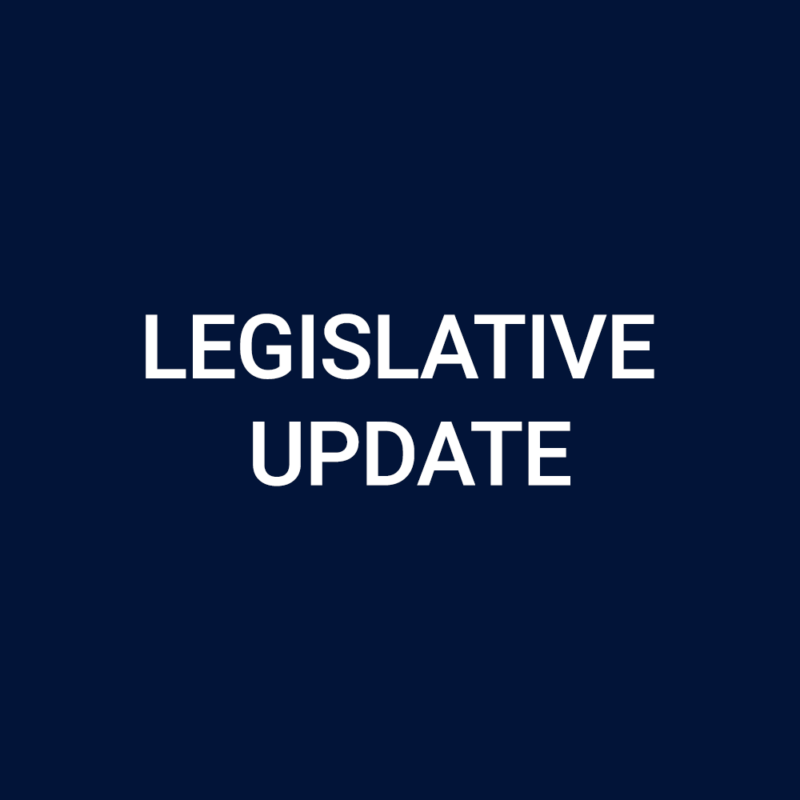For the first time in three years, the General Assembly has passed a budget with bipartisan support that is likely to be signed by the governor. The bill has a number of items that can be highlighted:
- $350 million in new funding for the evidence-based model
- $50 million for early childhood education
- Maintenance of student transportation proration at fiscal year 2018 level
- $15 million for after-school programs
- 2 percent increase in operations for public universities
- Level funding for MAP grants and allowing a new option for four-year grants
- $25 million for AIM HIGH scholarship program
- Restoration of funding to fiscal year 2018 levels for scholarship and education lines zeroed out in the governor’s introduced budget
- $75 million increase in childcare funding
- Restoration of funding for National Alliance on Mental Illness
- Project Ceasefire, Bullying Prevention Program and community-based violence prevention programs, previously cut by the governor, are restored
However, as part of the budget, there is a provision in the Budget Implementation Bill (BIMP) that is very problematic. There was a last-minute pension proposal introduced as part of the budget package that has several components. The most concerning of which is a decrease to 3 percent from the current 6 percent that employers can offer educators in both the Teachers’ Retirement System and State Universities Retirement System for pay increases in the four years used to calculate their retirement without incurring any cost increases to their own budgets. The concern is that employers may want to limit any salary increases to 3 percent, which would deter people from furthering their education, and dissuade people from entering the profession. This would ultimately lower the quality of education our students receive.
Bills that passed both houses and are waiting to be signed by the governor
HB 751 (Davidsmeyer, R-Jacksonville/Holmes, D-Aurora) amends the Pension Code to change the definition of “eligible employment” for the purpose of allowing a teacher to return to teaching in subject shortage areas without impairing his or her retirement status or retirement annuity, through June 30, 2019. IEA supports this legislation. This bill passed both houses.
HB 4768 (Wheeler, R-Chrystal Lake) amends the school board member oath to include a commitment to be responsible for the quality of education of every student in the school district, and not just assume fiscal responsibility. This bill passed both houses.
HB 5137 (Martwick, D-Chicago) creates an optional and supplemental 403b-like deferred compensation savings plan option for active participants in the Teachers’ Retirement System (TRS). This bill passed both houses.
HB 5175 (Cunningham/Hoffman) was amended in the Senate to contain identical language from HB 768, which was vetoed by Governor Rauner earlier this year. As amended, HB 5175 removes provisions allowing the State Charter School Commission to reverse a school board’s decision to deny, revoke, or not renew a charter. This legislation is an IEA initiative. This bill passed both houses.
HB 5627 (Bennett, R-Pontiac/Weaver, R-Peoria) is an initiative of ISBE and makes several changes to the Educator Licensure Article of the School Code. Highlights include: increasing his or her retirement status up to 120 paid days or 600 paid hours in a school year, changing the requirements for out-of-state applicants who are licensed educators in another state, and allowing a short-term substitute teaching license to be issued until June 30, 2023. Under this bill, an individual who has a minimum of 60 credit hours is eligible for a short-term substitute license and may teach no more than five consecutive days in a single classroom. IEA was originally opposed to this bill as introduced, but after subsequent amendments, we are neutral. This bill passed both houses.
HB 5696 (Welch, D-Hillsdale) creates the Bridge Program for the Underrepresented Students Act which provides that each public university in this state may establish a bridge program for underrepresented students. The program is designed to support underrepresented students at public universities. IEA supports this legislation. This bill passed both houses.
SB 2838 (Link, D-Waukegan) empowers the Illinois State Board of Education to implement a program and adopt rules to allow school districts to supplement their substitute teacher recruitment for elementary and secondary schools with the use of recruiting firms. The legislation prohibits school districts from using recruiting firms to circumvent collective bargaining agreements or laws. This bill passed both houses.
SB 2546 (Biss, D-Skokie) amends the Illinois Educational Labor Relations Act to provide that the term “student” within the definition of “educational employee” or “employee” as used in the act excludes (rather than includes) graduate students who are research assistants primarily performing duties that involve research, graduate assistants primarily performing duties that are pre-professional, graduate students who are teaching assistants primarily performing duties that involve the delivery and support of instruction, or any other graduate assistants. IEA supports this legislation. This bill passed both houses.
SB 2892 (Manar, D-Bunker Hill) this bill set the minimum salaries of teachers, a school board shall pay those who serve on a full-time basis a rate not less than $32,076 for the 2019-20 school year, $34,576 for the 2020-21 school year, $37,076 for the 2021-22 school year, and $40,000 for the 2022-23 school year. This bill passed both houses.
Important dates
A schedule for each chamber can be found on the General Assembly website.

